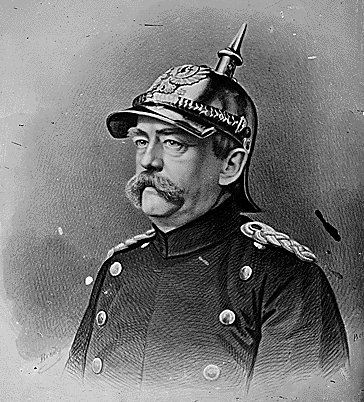
Bismarck’s alliance with the Prussian landowning class and powerful industrialists and the parties representing their interests had profound social effects. From that point on, conservative groups had the upper hand in German society. The German middle class began to imitate its conservative social superiors rather than attempt to impose its own liberal, middle-class values on Germany. The prestige of the military became so great that many middle-class males sought to enhance their social standing by becoming officers in the reserves. The middle classes also became more susceptible to the nationalistic clamor for colonies and “a place in the sun” that was to become ever more virulent in the next few decades.
In 1871, the Catholic Church comprised 38% of the population of the German Empire. In this newly founded Empire, Bismarck sought to appeal to liberals and Protestants (61% of the population) by reducing the political and social influence of the Catholic Church.
Priests and bishops who resisted the Kulturkampf were arrested or removed from their positions. By the height of anti-Catholic legislation, half of the Prussian bishops were in prison or in exile, a quarter of the parishes had no priest, half the monks and nuns had left Prussia, a third of the monasteries and convents were closed, 1800 parish priests were imprisoned or exiled, and thousands of laypeople were imprisoned for helping the priests.
Bismarck’s program backfired, as it energized the Catholics to become a political force in the Centre party. The Kulturkampf ended about 1880 with a new pope willing to negotiate with Bismarck, and with the departure of the anti-Catholic Liberals from his coalition. By retreating, Bismarck won over the Centre party support on most of his conservative policy positions, especially his attacks against Socialism.
Related articles:
Otto von Bismarck: The Iron Chancellor
Imperial Germany – the Second Reich
Political Parties in Imperial Germany
The Economy and Population Growth in Germany
The Tariff Agreement of 1879 in Germany and Its Social Consequences
Foreign Policy in the Wilhelmine Era
Germany in World War I

